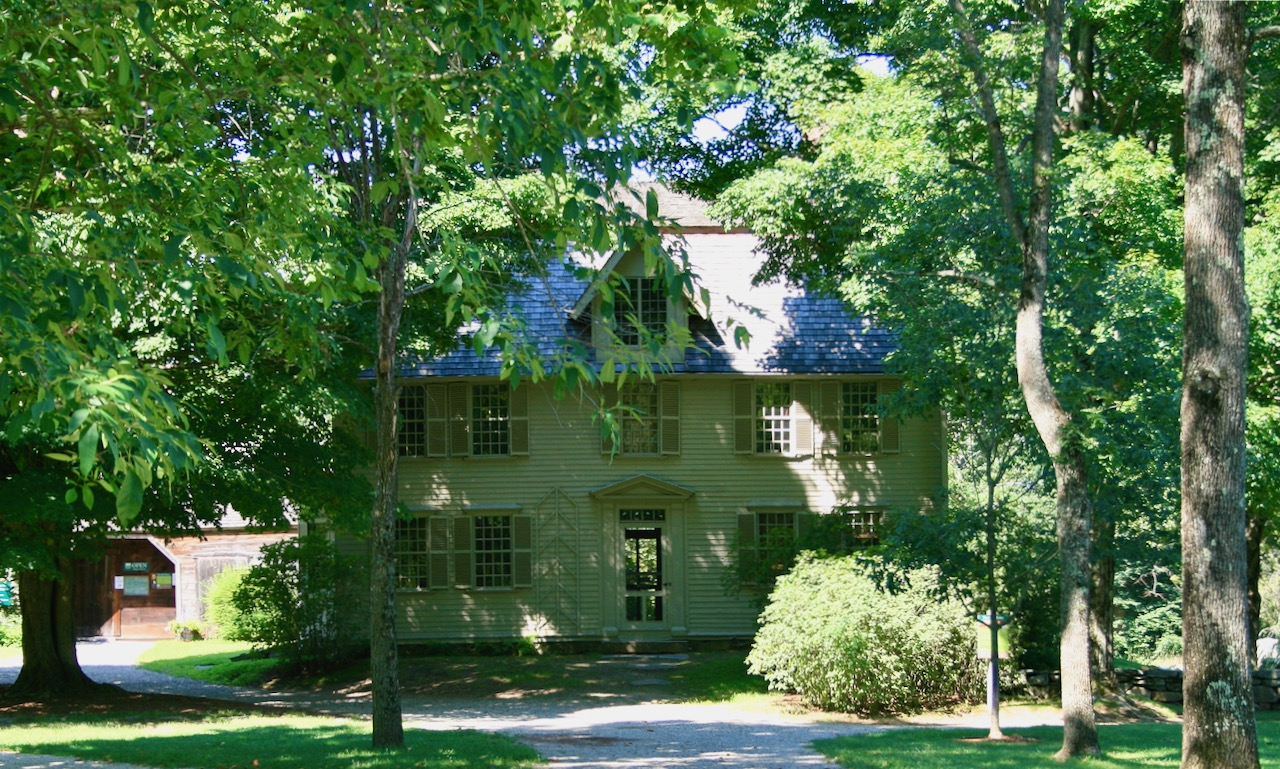Ralph Waldo Emerson’s grandparents, Rev. William Emerson and Phebe Bliss Emerson, built the Old Manse for their growing family in 1770. Five years later, they witnessed the “shot heard ’round the world” when Concord’s Minutemen routed soldiers of the British Army at the North Bridge, just 150 yards from their house. In 1817, Rev. Emerson’s successor, Rev. Ezra Ripley, baptized three-month-old David Henry Thoreau (who began calling himself Henry David Thoreau around age 20).
Ralph Waldo Emerson lived at the Old Manse in 1834-35, where he wrote the essay “Nature.” Thoreau read “Nature” when he was at Harvard, and after graduating came home to Concord and met Emerson in person. Emerson asked him “Do you keep a journal?” and his question sparked Thoreau’s writing career and a long friendship between them.
Thoreau was in the choir that sang Emerson’s “Concord Hymn” at the dedication of the Battle Monument at the North Bridge in 1837. In 1842, Thoreau and his Black neighbor John Garrison planted a kitchen garden at the Old Manse as a wedding gift for its new tenants, Nathaniel and Sophia Hawthorne, who lived there until 1845. Thoreau befriended Nathaniel, and sold him his boat and taught him to row. Hawthorne called Thoreau “a keen and delicate observer of nature.”
Mary Moody Emerson, who was born at the Old Manse in 1774, returned to Concord in the 1850s and enjoyed discussing nature, women’s rights, and the antislavery movement with Thoreau. He described her as “The wittiest and most vivacious woman that I know.”
Since 1939, the Old Manse has been under the stewardship of The Trustees, a Massachusetts nonprofit that preserves and welcomes visitors to places of ecological, scenic, and historic importance. Visit The Trustees’ website for hours of operation and tour information for the Old Manse.

